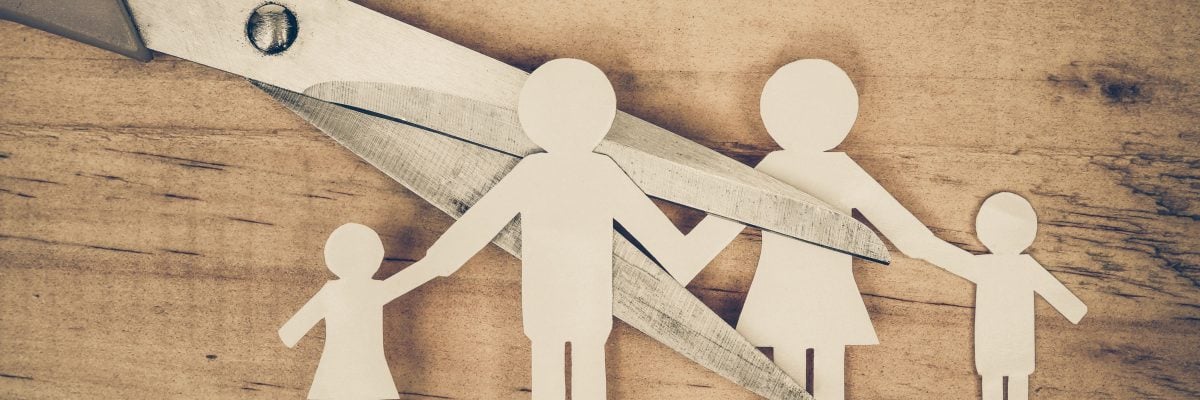
Last year, almost on a whim, I asked dozens of now-adult children of divorce to answer a few simple questions I had about the effect of their parents’ divorce on their lives. As a happily married woman and the product of an intact family myself, I had no idea what was about to come back to me: namely, an avalanche of previously unspoken pain from men and women who were, by all appearances, normal and successful.
I took the answers of seventy respondents—ranging in age from 22 to 66—and compiled them anonymously in a book called Primal Loss: The Now-Adult Children of Divorce Speak. In it the contributors speak freely, something most of them had never been able to do in the years and even decades since their parents’ divorce. What I have learned from these men and women (and from the countless people who have contacted me since) continues both to inspire and break my heart.
It’s hard to overstate how silent are the children of divorce, even into their old age. Not only are they almost never directly asked how they feel or felt about their parents’ divorce, but they are conditioned to protect their parents always, parents whom they love and do not want to hurt. There is a reason that many contributors asked me repeatedly for assurances that their identities would never be made known. One woman put it this way:
I’m so scared to share details, because, despite the incredible odds against this happening, I’m just sure that my mom or dad will read this book and immediately recognize which anonymous character is me. I am in an actual panic. That is the kind of reaction I have when I have even the slightest fear that they will find out how this has hurt me.
And another:
Thank you for anonymity; I don’t want anyone to know the extent of how damaged I am.
To be sure, the childhood victims of many other kinds of sins and injustices are often afraid to speak, but the children of divorce have an added burden and fear; unlike with child molestation, rape, or physical abuse, the culture says that the injustice done to a child via divorce is in fact a positive good! Not only is divorce perfectly legal and readily available in all circumstances, the victims of it (and this often includes an innocent, abandoned spouse) are told that the divorce is “for the best,” and that “everyone will be happier this way,” and it’s right and healthy to simply “move on.”
Social media is full of accolades for “healthy” co-parenting and “good divorce,” but I can tell you from my research that even the children of “good divorce” are suffering silently. The adult children of any kind of divorce think they are the only ones suffering, and they wonder what is wrong with them. That they feel isolation is not hard to imagine, considering the happy, smiley, “co-parenting is awesome, just look at us all at the soccer game!” photos (complete with hundreds of “likes”) to be found on social media.
And yet, what is going on behind those pictures is not nearly as sunny, as described by one of the contributors to Primal Loss:
I was that kid, and I had great anxiety as a child athlete in a divorced family with stepparents. For example, I once had a stepparent ask me why I would hug my mom first after a game before hugging anyone else. So the anxious self-questioning begins: Who should I hug first? Will the other parents be offended? Who should I go sit with? Should I ride home with this set of parents or would that upset the other parents? Oh no, both sets want to take me out for ice cream afterwards—who do I go with? Which set will be less offended if I don’t choose them? Who should I ask for money for a snack?….
I remember the time I got hurt in a game, and only one parent was allowed in the x-ray room with me…but all the parents were there! Who do I choose? I chose my mom, and my stepmom rolled her eyes because I didn’t choose my dad.
This anxiety surrounding a sporting event does not even touch the surface of the ordinary-life anxieties that children of divorce face—even into adulthood.
Since publishing Primal Loss, I have encountered another response more shocking than silence, but which in large part explains it: the resistance and even outright hostility to the book and its testimonies—even from faithful Catholics.
So many Catholics who would have no problem taking heat for proclaiming the Church’s teaching on the evils of abortion, contraception, and same-sex marriage suddenly get upset to hear Christ’s and the Church’s teaching on the evils of divorce. I’m convinced that the sin of divorce itself has become so culturally accepted and normalized even in our Catholic community that we no longer want to face the truth about it. We protect divorce itself more than we protect the children who have a natural, God-given right to a married mom and dad.
I know that such statements elicit strong emotions. A common question I immediately hear in response is, “But what about abuse?!”
One adult child of divorce, herself the victim of a truly perverse and abusive parental marriage, told me that she’s weary of folks using cases like hers to put the “mute button” on the discussion of divorce’s dark and long-lasting effects. She is not the only child of abusive marriage who has told me the same. They plead that, just like with abortion, we must not shout down the discussion—and Christ’s clear teaching—by focusing on the rare and hard cases (for which the Church does make provision for physical separation).
I pray that we might open our hearts to a much-needed dialogue about our divorce-saturated culture. In our compassion for adults in unhappy marriages, we must not ignore the injustice to the children of divorce, nor fail to listen to how their shattered families and identities have contributed to the social disorder we see all around us. Please, let us listen to them with no judgment, no excuses, no lectures of how “necessary” was the break-up of their family.
As our Church proclaims boldly:
Divorce is immoral…because it introduces disorder into the family and into society. This disorder brings grave harm to the deserted spouse, to children traumatized by the separation of their parents and often torn between them, and because of its contagious effect which makes it truly a plague on society (CCC 2385).
If we are proclaiming any less than this, we are not only downplaying one of the greatest sins of our time, but we are contributing to the silencing of divorce’s innocent victims: those children who never simply “get over” the primal loss of their family.



